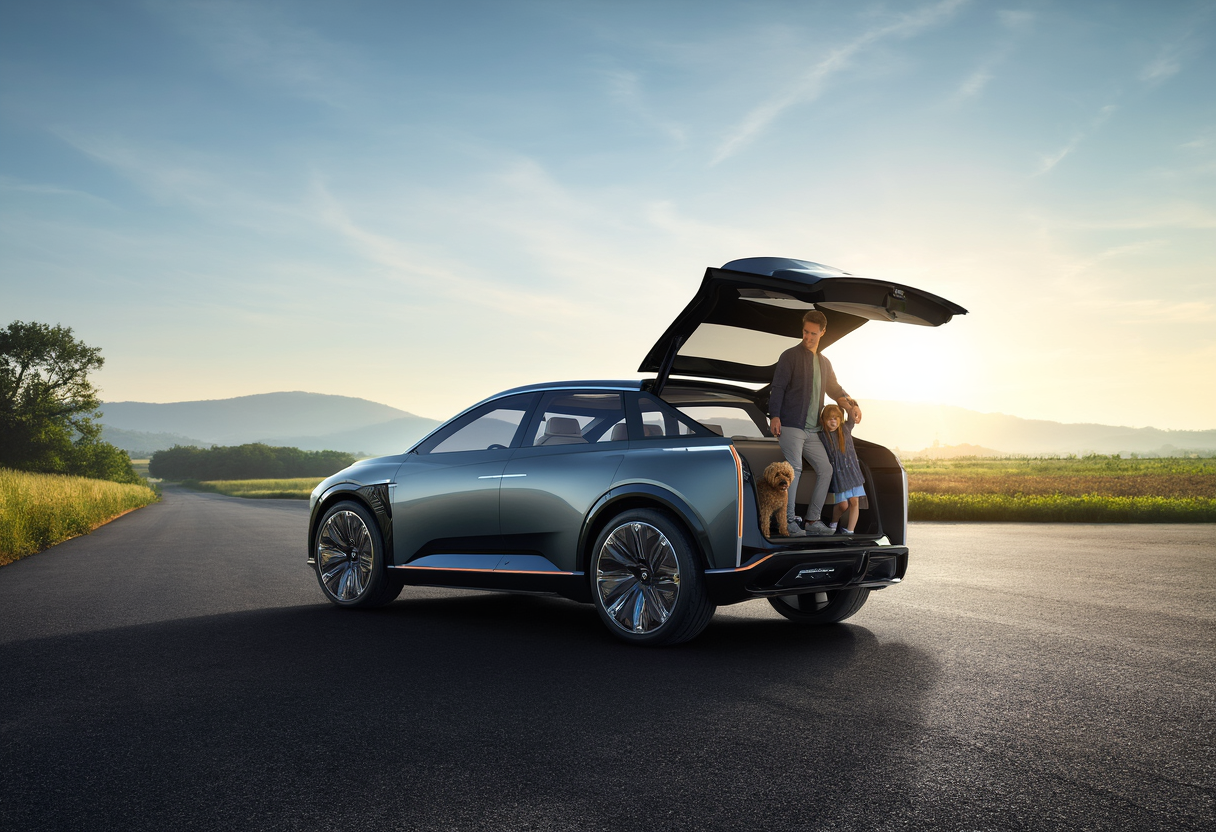The Rise of SUV Cars: Why They're Dominating the Market!
SUV cars have taken the automotive world by storm, appealing to drivers seeking versatility and space. Their rise in popularity reflects changing consumer preferences and lifestyle needs. In this article, we explore the factors propelling SUV cars to the forefront, their impact on the automotive market, and what this trend means for the future. Is the SUV trend here to stay? Join us as we delve into the details and insights behind this phenomenon.
Understanding the Surge in Popularity of SUV Cars
In recent years, the popularity of SUV cars has soared, becoming a staple in driveways across the country. Consumers are drawn to the size, elevated driving position, and versatility that SUV cars offer. Unlike traditional sedans, these vehicles provide ample cargo space and seating capacity, making them ideal for families and outdoor enthusiasts. Furthermore, automakers have responded by enhancing the performance and fuel efficiency of their SUV cars, addressing previous concerns that buyers had regarding their environmental impact. Consumers today seek vehicles that align with their lifestyle, and SUV cars perfectly bridge the gap between functionality and comfort. With a broad range of options available, from compact crossovers to full-size SUVs, it’s clear that there's an SUV car to suit almost every preference. Additionally, the rise of interest in SUVs correlates with the lifestyle changes influenced by urban living and the growing popularity of outdoor activities.
Market Trends: SUV Cars vs. Other Vehicle Classes
The SUV market is witnessing remarkable growth compared to traditional car classes, such as sedans and hatchbacks. Statistics show a significant increase in the sales of SUV cars over the past decade, with consumers gravitating toward vehicles that offer a combination of style and practicality. As car buyers prioritize spacious interiors and a commanding presence, manufacturers are highlighting the ruggedness and aesthetic appeal of their SUV cars. Moreover, many SUV models now include advanced technology and safety features, further enhancing their attractiveness to potential buyers. On the flip side, sedan sales have been declining, as fewer consumers view them as a valuable investment. This shift in consumer preference is a vital indicator of changing values within society and the automotive marketplace. Indeed, the decline of traditional car classes highlights a crucial shift in what consumers want from their vehicles — the preference for spaciousness and versatility triumphs over traditional compactness.
Impact on Environmental Considerations
While the rise of SUV cars has dominated conversations about consumer preferences, it also raises questions about environmental sustainability. Critics argue that SUV cars, particularly traditional gas-powered models, contribute significantly to greenhouse gas emissions. However, automakers are increasingly developing hybrid and electric versions of SUV cars to address these concerns, providing environmentally friendly options for conscientious consumers. The introduction of electric SUVs signifies a pivotal moment in the automotive industry, empowering buyers with options that align with their eco-friendly values. As technology advances and charging infrastructure improves, more consumers are likely to consider electric SUV cars. This integration of eco-conscious features will likely shape the competitive landscape of the automotive industry. Therefore, the trend toward electric SUV cars may become a crucial feature of the market, addressing both consumer demand and environmental responsibility.
Societal Impact: SUV Cars and Lifestyle Changes
Additionally, the popularity of SUV cars has overshadowed traditional vehicles, signifying a broader cultural shift. The modern lifestyle has changed dramatically, with consumers often needing vehicles that accommodate both urban commuting and weekend adventures. SUV cars fit seamlessly into this dynamic, serving as multipurpose vehicles that can handle daily challenges while also providing the capacity for outdoor excursions. Families appreciate the higher safety ratings of SUV cars, especially for child passengers, giving them peace of mind during travel. Furthermore, the appeal of SUV cars extends to their aesthetic presence on the road, where larger vehicles often evoke feelings of prestige and status among drivers. The cultural significance of owning an SUV car cannot be overlooked, as they are now associated with aspirational living and varied lifestyles, enhancing their allure in today's marketplace.
Unique Insights: Features Driving Consumer Choice
What, precisely, drives consumer choice when selecting SUV cars? The answer lies in numerous factors, including technology integration, luxury features, and brand perception. Numerous reviews and consumer feedback highlight the importance of infotainment systems, advanced safety features, and comfortable interiors in making a decision. SUV cars that offer spacious cabins, modern technological amenities, and luxurious finishes often attract more customers. Furthermore, factors such as brand reputation play a critical role; consumers often select established manufacturers associated with reliability and quality. Automakers investing in innovative design and customer-oriented features will likely emerge as market leaders. In sum, understanding these preferences can help manufacturers cater to specific market demands effectively.
Conclusion: The Future of SUV Cars
In conclusion, the rise of SUV cars marks an important period in automotive history characterized by evolving consumer preferences and societal values. As buyers seek versatility, performance, and attractive designs, SUV cars have become the go-to choice for many individuals and families. The shift in market dynamics illustrates a clear move away from traditional vehicle classes in favor of more spacious and functional options. With sustainability becoming a focal point, the future of SUV cars appears promising, especially as advancements in electric and hybrid technology continue to reshape this segment. In summary, the SUV trend is likely to grow even stronger in the coming years, reshaping our roads and lifestyle along the way.
